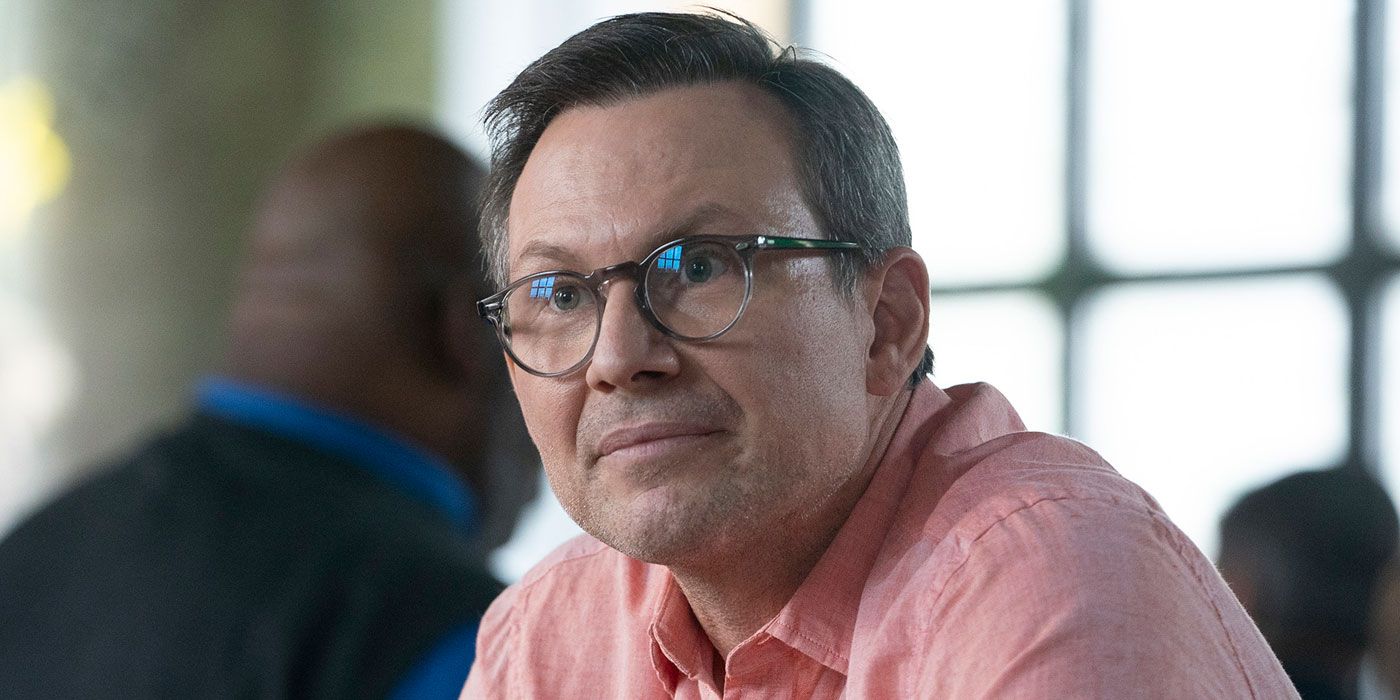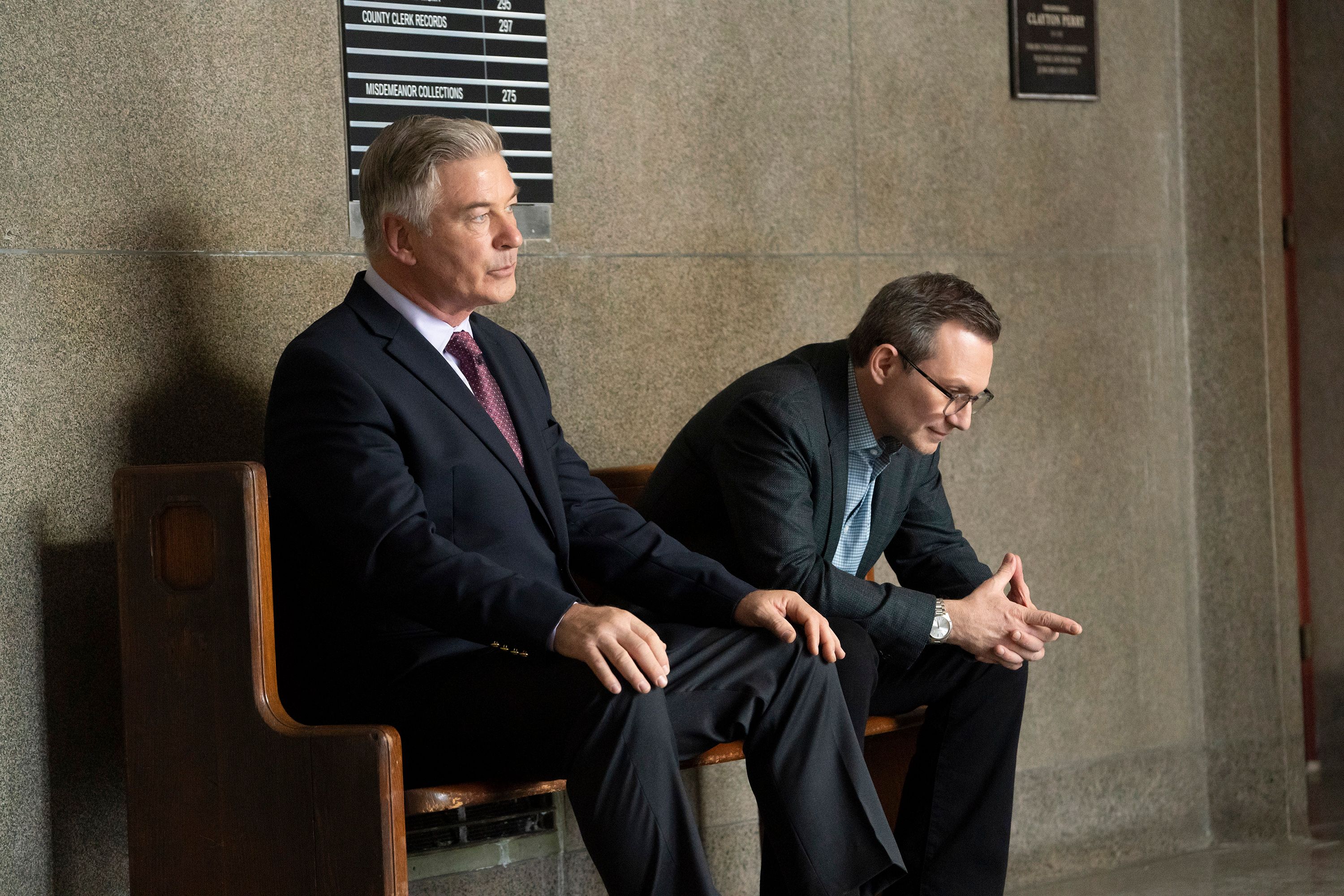The Peacock limited series Dr. Death is based on true events, but it does come with some clear-cut heroes and villains. Central to the show is Christopher Duntsch (Joshua Jackson), a Texas physician who repeatedly crippled or killed his patients due to either gross incompetence or cruel intentions, but the heroes of the story are the two doctors, Randall Kirby and Robert Henderson (played respectively by Christian Slater and Alec Baldwin), who realized before most what was happening and worked tirelessly to stop Duntsch from continuing to operate.
Despite the seriousness of the topic, Slater got to flex some comedy muscles as Dr. Kirby, whose maverick personality and unconventional choices in apparel are matched by his dedication to his profession. In a one-on-one interview with Collider, the veteran actor talked about how this experience compared with his work on Mr. Robot, how he prepared for the role, and what it was like improvising with Baldwin.
Collider: Thanks for doing this today — I want to start by asking, how has this show changed your relationship with going to the doctor?
CHRISTIAN SLATER: Yeah, it certainly has. I think it's an important show for people to see. We tend to put doctors on such a pedestal and we turn our lives over to these supposed experts. And some of them are. Some of them were amazing. I have a brother-in-law who is a vascular surgeon that I actually got to spend time with before I shot the show. And that was so extraordinarily helpful to watch a skilled doctor performing the way that he did. So, but, yeah, certainly it lends itself to asking, getting a second, third, fourth opinion.
Absolutely. In terms of the character, how much were you able to really dig into who the real live person was?
SLATER: Well, I did have plans to go and meet with him. I was going to fly to Dallas before we shot, but then COVID hit and I had to cancel that trip. And to a certain degree, when you meet the real person, you tend to want to do makeup and look exactly like that person. I'm grateful that that didn't happen.
I mean, basically, what I wanted to do was just bring this man's energy to the story and his passion and his enthusiasm for doing the right thing and really putting his life on the line — well, not his life, but his career on the line, in order to stand up for justice. And I did recently meet with him at the New York premiere of the show and I loved him. He is, I think, a genuine hero, and he was willing to do the right thing at all costs.
You've gotten to do so much interesting work in your career, but this was a real opportunity to at times be the genuine comic relief in a show. Was that something you felt at the time?
SLATER: Well, I didn't go into it thinking, "How can I be funny?" I tried to keep it loose. I tried to, when you're working with somebody like Alec Baldwin, who's, he's a great [inaudible 00:02:58] man, and you never know how the chemistry is going to work. You always go into it with a little bit of anxiety, certainly in the first few days, but, Alec was great. He's just an expert and a master, and somebody that I've always admired. And we were given a lot of opportunity to improvise and really have some fun with these characters. And I enjoyed all those aspects of it.
In terms of wardrobe, did you have any input into the looks?
SLATER: Well, I think the real Dr. Kirby had more influence in that. I mean, he is really that type of guy. He's a little bit unpredictable, extraordinarily passionate, there's a dangerous unpredictability to him, that that was something that I wanted to bring.
Right. In comparison to the other characters, you don't have as much work to do in terms of keeping the timeline straight, but you definitely have a progression in terms of how you relate to Dr. Duntsch. What was key in terms of just kind of keeping track of that?
SLATER: Well, we always rely on the script coordinator, the person in there that is helping to keep things on track. To a large degree, we were able to shoot a majority of the show, because we did shoot one episode, second episode, third episode.
It wasn't like when I was working on Mr. Robot, where that was all boarded and we would shoot scenes from Episode 1 to Episode 9 on the same day. That was actually really challenging. But with this, there was a nice steady arc. So I think Alec and my relationship was able to build in a more genuine way.
Talking about the improvising, is there something you know made it into the show that came from improv, that you're happy with?
SLATER: Yeah. I think, from what I understand, a majority of the things were left in. Is there anything specific that I can think of? I actually haven't... I have a hard time watching myself. I tend to be hypercritical and I don't like to watch myself perform. To a large degree, that's why I love to do theater, because I can really just be in the moment and do the play and that's it, and I don't ever have to watch it, or I don't have to think about it again. So, with this medium, I haven't done enough research right now to be able to give you an answer.
Sure. No worries. In looking forward, do you feel like you want to keep doing more limited series like this, or do you feel like you want to go to other directions?
SLATER: I do love this format. Doing a mini-series type situation where there's only eight episodes, I think is great. There's, I think, less pressure involved in it. You're not trying to get a third, or fourth, a fifth or sixth season. It's an isolated story. It's got the beginning, the middle, and the end and you get to tell it. So it's much more of a, I think, a movie type of format, but you just get to get deeper and deeper into the characters.
Dr. Death is available now on Peacock.


